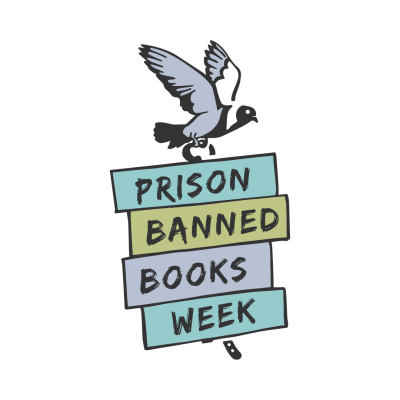
Prison Banned Books Week 2024 Kickoff

Today is the first day of Prison Banned Books Week 2024 (PBBW). This year the campaign will be focusing on how companies selling tablet services to the state have exacerbated the problem of censorship in prisons. MIM(Prisons) is one of dozens of organizations participating in PBBW. You can view the full list at prisonbannedbooksweek.org, where you can send letters to your legislators and letters to the editor to call on prisons to allow donated books from organizations like ours, as well as free digital books through local libraries. Also look for #prisonbannedbooksweek on various social media platforms this week (you can now follow us on Mastodon).
Each day this week we will be publishing stories related to censorship in prisons, and we ask our supporters to share them with your networks using the hashtag #prisonbannedbooksweek. Censorship in prisons has been at the heart of what we do since day one and is a daily struggle for us and for our readers, as we must fight for our First Amendment rights in this country. We will give you an overview of what this looks like in this first installment for PBBW.
We hope this campaign encourages people to support our Free Political Books to Prisoners Program with donations, to engage in activism and legal advocacy in support of prisoners receiving a variety of reading materials, and that it spreads awareness about the growing control of information that these state/corporate partnerships are bringing to our lives.
Our Books Program
While the MIM Free Political Books to Prisoners Program actually began in 1988, our organization formed in late 2007, taking over the duties of the MIM Prison Ministry. This work involves publishing a regular newsletter for prisoners and corresponding with prisoners through the mail, in addition to sending other forms of literature.
As we celebrate 17 years of existence, we approach the 200,000 mark for the number of pieces of mail we have sent to prisoners over those years. For all that mail our overall confirmed censorship rate is only 6%. However, 73% of our mail is never confirmed received or censored. This is some combination of prisoners never writing us back, mail being illegally censored and mail just being lost. While the percentages of each are certainly in that order, we have no way of knowing what the actual breakdown is of the fate of that 73% of mail we send out. For the 27% of mail that we can confirm, 4 out of 5 items do make it to their recipients.
About 40,000 pieces of mail we’ve sent are letters to prisoners, while over 6000 are books and zines by other authors. The remaining almost 150,000 pieces of mail are literature that we publish, the majority of it being our newsletter Under Lock & Key, but this also includes many MIM Theory journals, Chican@ Power and the Struggle for Aztlán and various other pamphlets and study packs.
Interestingly it is the other books and zines that are censored at a higher rate (8.2%) than our own literature and letters (both less than 6%). The fact is that books and magazines do face a higher level of scrutiny than newspapers and letters, and are often censored for superficial reasons like the condition of the book or the publisher of the book not matching the sender, etc.
Anyone can browse through the incidents of censorship of our mail on our website. Numerically, Under Lock & Key accounts for most of our censorship, since that is most of the mail we send to prisoners. After ULK, you’ll see that some of our most censored pieces of literature in the last couple years are: Tip of the Spear: Black Radicalism, Prison Repression, and the Long Attica Revolt by Orisanmi Burton, Power to New Afrika by Triumphant, Revolutionary 12 Step Program by a USW comrade and our very own Fundamental Political Line of the Maoist Internationalist Movement. You’ll note that most of the reasons given for these books are clearly politically motivated, claiming the literature will cause disruptions and riots, even the 12 Step Program, as we reported in ULK 78.
Another common appearance on the list is, ironically, our Guide to Fighting Censorship in Prisons, which we send to any prisoner facing censorship at their facility.
You’ll also see in the list of censorship the occasional overturned decision. This is due to the persistence of our comrades inside as well as our volunteers on the outside who appeal as much of the unreasonable censorship as they can. This is one of many tasks that we could use your help with.
Prison and jail systems across the country continue to move to digitize letters to read on tablets, and restrict books from more and more sources, under the guise of fighting drugs. While drugs have not decreased, our problems getting mail to prisoners have increased, as you’ll read in the series of articles we’ll be publishing this week.








